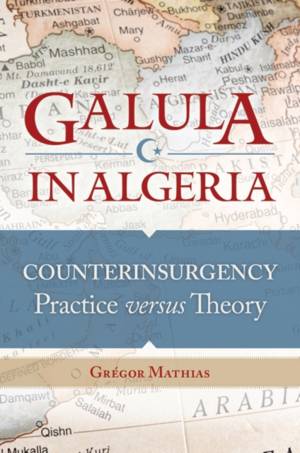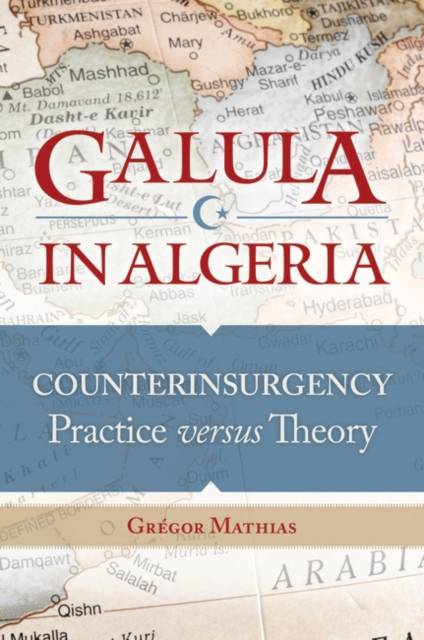
- Retrait gratuit dans votre magasin Club
- 7.000.000 titres dans notre catalogue
- Payer en toute sécurité
- Toujours un magasin près de chez vous
- Retrait gratuit dans votre magasin Club
- 7.000.000 titres dans notre catalogue
- Payer en toute sécurité
- Toujours un magasin près de chez vous
Description
This groundbreaking investigation uncovers serious mismatches between David Galula's counterinsurgency practice in Algeria and his counterinsurgency theory--the foundation of current U.S. counterinsurgency doctrine in Iraq and Afghanistan.
Given the centrality of David Galula's theory to U.S. Counterinsurgency (COIN) doctrine in Iraq and Afghanistan, it is striking that there has been no independent evaluation of Galula's recollection of his COIN operations in Algeria. Galula in Algeria: Counterinsurgency Practice versus Theory delivers just such an analysis, exploring the colonial French counter-insurrectionary theoretical milieu of which Galula's COIN theory was a part, the influence of Galula's theory on U.S. COIN doctrine, and the current views of Galula's theory in France and other NATO countries. French defense researcher Grégor Mathias compares each of the eight steps of Galula's theory set out in Counterinsurgency Warfare against his practice of them as described in his writings and now, for the first time, against the SAS archives and those of Galula's infantry company and battalion. The study shows that Galula systematically inflated his operational successes to match his theoretical scheme and that he left problems unresolved, causing his work to unravel quickly after he left his command. Mathias concludes that, however heuristically fruitful Galula's theory might prove for U.S. COIN doctrine, it must be interpreted and implemented under the caveat that it was not successfully field-tested by its author. .Spécifications
Parties prenantes
- Auteur(s) :
- Editeur:
Contenu
- Nombre de pages :
- 168
- Langue:
- Anglais
- Collection :
Caractéristiques
- EAN:
- 9780313395758
- Date de parution :
- 05-10-11
- Format:
- Livre relié
- Format numérique:
- Ongenaaid / garenloos gebonden
- Dimensions :
- 155 mm x 236 mm
- Poids :
- 385 g







